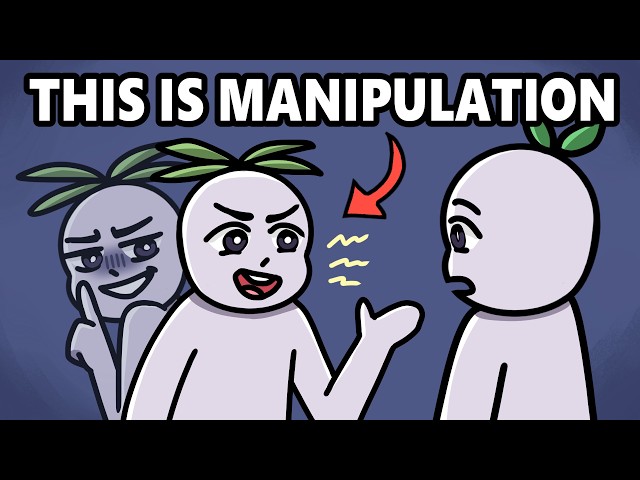Understanding Subtle Manipulation Tactics
Gaslighting, love bombing, and victimization are well-known manipulative tactics used to seize power from someone. However, there are even more subtle manipulation tactics that can be difficult to detect. These often involve subtle cues and psychological manipulation rather than overt threats or coercion. So, what are they? Today, we’ll explore how others can subtly manipulate your perception through your blind spots and vulnerabilities, aiming to help you protect yourself against such manipulation.
Scotoma: Exploiting Mental Blind Spots
Scotoma is like having a mental blind spot. It occurs when people unconsciously ignore or overlook certain information. This psychological phenomenon can be used as a manipulative tactic, where someone intentionally exploits another person’s tendency to ignore or overlook specific details. Manipulators may control or influence someone’s perception by strategically presenting or withholding information.
For example, a manipulator might provide selective information that supports their agenda while deliberately omitting details that could lead to a different interpretation. By exploiting the individual’s blind spots, or scotomas, the manipulator shapes their target’s perception to serve their own goals.
Balance Theory: Leveraging Relationships
The balance theory manipulation tactic involves influencing someone’s preferences by leveraging positive relationships. Essentially, people are more likely to adopt the likes and dislikes of those they have a good relationship with. Manipulators take advantage of this by intentionally fostering positive connections and then subtly steering others toward their preferences.
For instance, suppose a person befriends someone known for their generosity and kindness. Over time, the manipulator pretends to share similar values and interests to deepen the friendship. However, behind the scenes, they’re using the kind friend to borrow money without any plans to repay it. Additionally, they may exploit the friendship to gain access to different friend groups and other social perks, taking advantage of the relationship for their own gain.
Smear Campaign: Damaging Reputations
Smear campaigns occur when a manipulator launches harsh attacks on someone’s reputation. This tactic is often used when the manipulator can no longer control their target. They attempt to manipulate how others perceive you, hoping to isolate you from your social group. When people are power-hungry, they resort to smear campaigns, or what we might call “burning stake shows.” While we don’t literally burn people at the stake these days, these smear campaigns can still devastate someone’s life by damaging their reputation.
For example, spreading false information or rumors about someone at work or in their personal life is a common smear campaign tactic. If you know someone who loves gossiping about people they dislike or can’t control, be cautious. Don’t believe everything they say you might become their next target, especially if you see through their controlling behavior and lies.
Manipulative Self-Disclosure: Trading Information
Manipulative self-disclosure occurs when someone shares fake or unnecessary personal details to earn social “brownie points,” planning to later cash them in for more valuable information from their target. Personal information is highly valuable in social interactions it can empower the person sharing it but also makes them vulnerable. Sharing personal details builds trust and strengthens connections.
In the world of social exchange, giving out valuable information sets you up to receive some in return, following the principle of reciprocity: “I scratch your back, you scratch mine.” However, manipulators exploit this system. They might share useless or unprompted personal information, pressuring the target to reveal their own valuable details. Alternatively, if the manipulator has a clear goal, they might drop unasked-for personal information and then directly ask for the sensitive information they really want. It’s a tricky, unfair game of give and take.
Manipulative Moralizing: Inducing Guilt
Manipulative moralizing is when someone makes you feel guilty for not living up to their idea of what’s right or moral. Who gets to decide what constitutes a good set of morals? If it’s the manipulator, there’s likely a hidden agenda. They use guilt to push you to change your behavior to fit their idea of proper conduct, often seeking to influence your actions or gain a sense of power and satisfaction.
When manipulators are skilled, you may feel judged and inadequate. To avoid this, you might adjust your beliefs and actions to align with what the manipulator deems right, or even hide your true self. Moralizing often comes across as judgment from a self-appointed authority, sometimes called “moral policing.”
For example, imagine a friend who constantly criticizes your lifestyle choices, making you feel like you’re doing everything wrong. Over time, you might change your behavior just to avoid their judgment, even if it means hiding who you truly are. This friend is using manipulative moralizing to control your actions and beliefs according to their standards.
Pity Party: Playing the Victim
Pity plays, or pity parties, occur when someone tries to make you feel sorry for them by acting helpless or playing the victim. Their goal is to get you to do something for them out of pity. Imagine a friend who always complains about their tough luck, portraying themselves as a perpetual victim and blaming everyone else for their problems. They hope you’ll feel sorry for them and help them out of pity.
This tactic becomes even more powerful when combined with guilt-tripping, where they make you feel responsible for their victimhood, saying, “I’m a victim because of you, so you need to make it up to me.” Pity plays are often a last-resort manipulation tactic when someone has no other way to get what they want. Be cautious, as pity plays can also be used to unfairly tarnish someone’s reputation.
Conclusion: Staying Vigilant
Understanding these manipulation tactics helps us stay alert in relationships. Awareness is our best defense. By setting healthy boundaries and maintaining open communication, we create spaces for genuine connections where manipulation struggles to find a foothold.







Leave a Comment